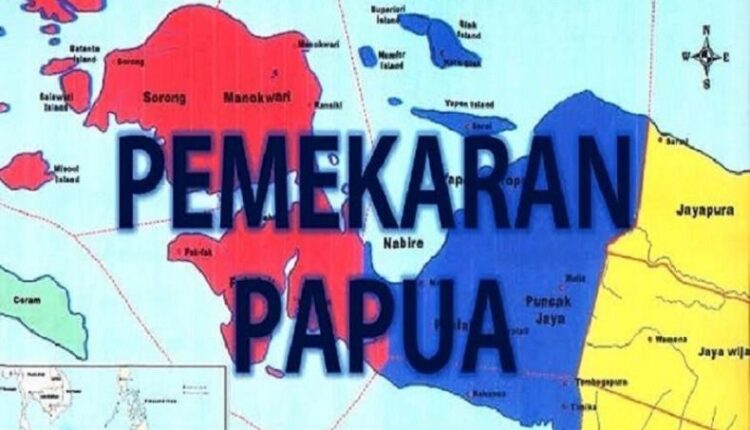Appreciating the Government’s Commitment to Realizing the Welfare of the Papuan People through Special Autonomy
Special Autonomy (Otsus) for Papua is a policy implemented by the government to provide broader autonomy to the Papua Province. Special Autonomy for Papua was first granted through Law (UU) Number 21 of 2001 concerning Special Autonomy for Papua Province. The main background for the granting of Special Autonomy is to maintain national integration within the Unitary State of the Republic of Indonesia (NKRI).
Apart from that, Special Autonomy is given in order to recognize and respect special or special regional government units, give appreciation for the equality and diversity of the socio-cultural life of the Papuan people, and ensure that the management of natural resources and government administration can realize the achievement of community welfare so that there is no longer a gap between Papua Province and other provinces.
The granting of special autonomy to Papua was carried out at the right momentum, namely during the reform order and when there were demands from the Papuan people to return the name of Irian Jaya Province to Papua. At that time, the government was determined to resolve various major problems of the Indonesian people in organizing a better national and state life, for example recognition of the existence of traditional rights, respect for human rights (HAM) and resolution of past human rights violations.
This is in line with the objectives of the Papua Special Autonomy policy, namely to give the provinces in Papua the broadest authority to carry out special government and management of natural resources (SDA) and their use for the welfare of the Papuan people. The Special Autonomy policy also places indigenous Papuans (OAP) as the main subjects as well as objects in implementing development in Papua.
Then the authority possessed by regions, both provinces and districts/cities in general has been regulated in Law Number 23 of 2014 concerning Regional Government as has been amended several times, most recently by Law Number 6 of 2023 concerning the Determination of Perppu Number 2 of 2022 concerning Job Creation into Law. -Law, and explained in the distribution of concurrent affairs contained in the attachment. Especially for regions in Papua, they are given special authority which is regulated separately in both the Papua Special Autonomy Law and the Papua Authority PP.
President Joko Widodo said that Special Autonomy for Papua is an effort to create equitable development. Apart from that, with the existence of Special Autonomy, it is hoped that it will facilitate the reach of services in the vast land of Papua. Apart from that, the policy of regional expansion in Papua is an aspiration that comes from the Papuan people themselves. This aspiration has existed for several years and comes from various community groups in various regions.
In the Papua Special Autonomy Law and the Papua Authority PP, provincial authority includes authority in all areas of government, except absolute government authority and government authority regarding development planning policies, balancing funds, state administration systems, state economic institutions, authority to develop human resources, utilization of natural resources. as well as strategic high technology, conservation and national standardization. The special authority granted covers the fields of education and culture, health, social, economic, population and employment, as well as sustainable development and the environment. Details of special authority for provincial and district/city governments in Papua are listed in the attachment to the PP on Papuan Authority.
Apart from that, the broad authority over government administration in Papua through the Special Autonomy policy greatly opens up opportunities for indigenous Papuan micro, small and medium enterprises (MSMEs) to be able to develop and advance to become reliable entrepreneurs. The government’s support for OAP business actors has also encouraged the preparation of a special government master plan in the field of community economic empowerment in order to improve community welfare.
Head of the Southwest Papua Forestry and Land Environment Service (DLHKP), Julian Kelly Kambu, said that Special Autonomy is a special authority recognized and given to the Papua province to regulate and manage the interests of the local community according to its own initiative based on the aspirations and basic rights of the Papuan people. There were many considerations behind the birth of the Special Autonomy Law in 2001, and these can be seen in the weighing section. There are approximately 7 things that were taken into consideration for the birth of the Special Autonomy Law, which were ideas that were then formulated and born from Papuan children which were then offered as solutions to overcome problems in Papua.
Julian Kelly also said that the government is committed to implementing environmentally sound and sustainable development in accordance with the mandate of the Special Autonomy Law and must be implemented and monitored together. Furthermore, through Special Autonomy, efforts can be made to promote and preserve the culture and identity of the Papuan people. This can be done through support for traditional arts and culture, as well as including education about Papuan history and culture in the education curriculum, so that through effective implementation of the Papua Special Autonomy policy and good management of available funds, it is hoped that the standard of living of the Papuan people will improve significantly. significant. This effort must be sustainable and pay attention to the needs and aspirations of the Papuan people holistically.
